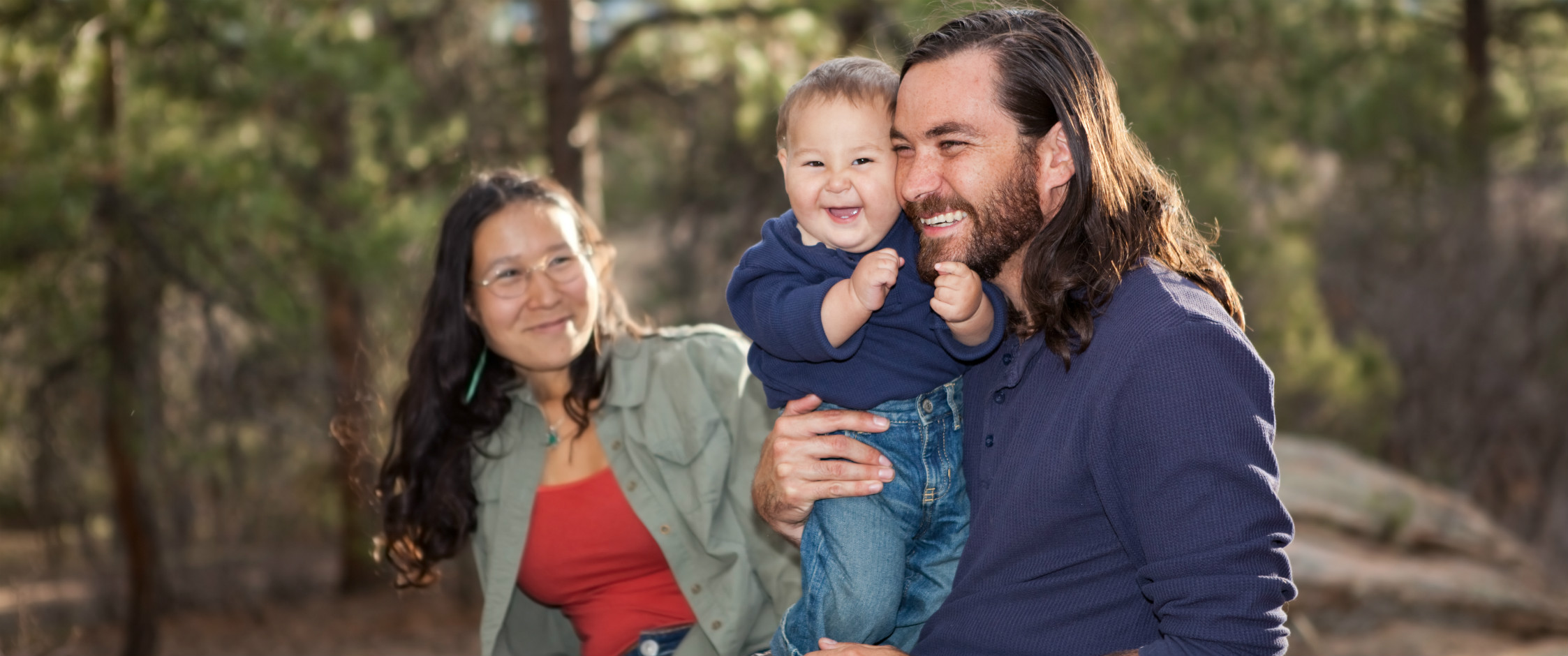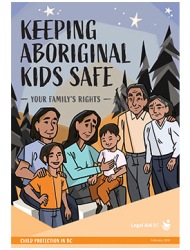
If you're Aboriginal, certain legal issues get specific consideration in family court:
- property
- child support
- guardianship
- parenting arrangements
- contact with a child
For example, when the court considers the best interests of the child when making parenting orders, it might take into account your child's Aboriginal heritage, traditions, and culture.
Caring for your children after separation or divorce
Many of the legal considerations for parenting after separation or divorce are the same for Aboriginal families and non-Aboriginal families.
When the court makes its decisions, it might also take into account your child's:
- Aboriginal identity
- Aboriginal heritage
- traditions
- culture
The fact a child is Aboriginal doesn't outweigh other factors the court considers about the best interests of the child.
If Aboriginal parents separate and can't agree about the care of their children, they can get the usual court orders about parenting.
Aboriginal parents working out arrangements for their children outside the court process might be able to get help from:
- an Elder
- a community leader
- the band
- another Aboriginal family resource
Other considerations for Aboriginal children are described below.
Parenting orders
Under family laws, all children — including Aboriginal children — have a right to stay connected with their culture and heritage. When it's making decisions about parenting arrangements, what matters to the court are the actual practices or cultural experiences each parent makes available to the child. The court considers a child's Aboriginal ancestry as part of the best interests of the child.
For more information about parenting orders, see Parenting apart on Justice Education Society's Family Law in BC website.
If you live on reserve
If you live on reserve and you're responsible for your child's:
- guardianship
- parental responsibilities
- parenting time
the court might uphold your children's rights to continue to live with you even if they're not band members.
When the court decides about parenting time and contact with a child, it can consider your child's Aboriginal ancestry.
In rare cases, a band council resolution might restrict a non-band member parent from going onto the reserve to see their child. If this is your situation, it's a good idea to get an order or agreement for parenting time or contact that sets out where drop-offs and pick-ups can happen off reserve.
Guardianship
When the court makes decisions about guardianship, it might take into account your child's:
- heritage
- traditions
- culture
Your child's heritage could be Aboriginal or additional cultures. The court looks at specific cultural practices or contacts each parent can provide to your child, rather than the culture itself.
In addition to the usual rules about guardianship, status Indians (or non-Aboriginal people who have children with status Indians) are subject to the Indian Act. The act says the Minister of Crown-Indigenous Relations and Northern Affairs Canada might:
- administer,
- provide for the administration of, or
- appoint guardians to administer
any property infant children of "Indians" are entitled to.
Crown-Indigenous Relations and Northern Affairs Canada should only do this if both parents die without leaving a will that passes guardianship to some other person.
Child support and spousal support
The same rules about child support and spousal support apply to Aboriginal parents and non-Aboriginal parents. One important difference applies to Aboriginal parents paying child support who:
- qualify as status Indians under the Indian Act, and
- might not be required to pay income taxes.
In these cases, the court will "gross up" the income of the parent paying child support to make sure the children get an appropriate amount of child support.
The same process applies to spousal support.
Child protection and your child's Aboriginal identity
BC law has special terms about the care of Aboriginal children in child protection situations. The law recognizes:
- Preserving (protecting and keeping) their cultural identity is essential to the safety and well-being of Aboriginal children.
- Preserving their cultural identity is necessary when planning for an Aboriginal child's care.
- Aboriginal people and the Aboriginal community should be involved in the planning and delivery of services to Aboriginal families and their children.
- Appropriate Aboriginal organizations must be notified of child protection proceedings that involve Aboriginal children.
- If appropriate, designated representatives of bands, Aboriginal communities, treaty First Nations, and the Nisga'a Lisims government have the right to become a party to a child protection hearing for a child from their community. A designated representative is someone who is chosen to speak for others.
- If the ministry takes your child from your home, it should first try to place your child with your family or another Aboriginal family.
If a social worker from the ministry or a delegated Aboriginal agency has contacted you about your children, call Legal Aid BC immediately to find out if you qualify for free help from a lawyer and an advocate at a Parents Legal Centre.

Property on reserve
The provincial law usually deals with the division of family property. As of December 16, 2014, the Family Homes on Reserves and Matrimonial Interests or Rights Act sets out who can stay in the family home if your relationship breaks up or your partner dies. These laws might apply to you if:
- you live on a First Nation reserve,
- at least one of you is a member of the First Nation or a status Indian, and
- you've been living with your girlfriend or boyfriend for at least a year (you're common-law partners), or
- you're married (spouses).
The law applies even if only one of you is a First Nation member or a status Indian. For example, if your partner is a First Nation member and you're not, you might still be able to stay in the family home.
Who can sell the interest in the home?
You or your partner can't sell any interest in the home without the other person's consent (agreement). For more information, see Your home on reserve.
Watch this video to hear George's story.
Legal Aid BC family advice services — Family duty counsel and family advice lawyers who help people with family law issues and child protection matters
Indigenous Community Legal Workers — Give legal information and limited advice services
Family LawLINE (Legal Aid BC) — Phone service where family lawyers provide advice about parenting time, support, and agreements, and child protection.
See more
Community support services
Ministry of Indigenous Relations and Reconciliation — See their Guide to Indigenous Organizations and Services in British Columbia for organizations that can help
Health and wellness
BC Association of Friendship Centres — Find a friendship centre in your area
Victoria Native Friendship Centre — Free legal clinic — Call 250-412-7794
Crisis support and counselling
Hope for Wellness Help Line — Free, experienced, and culturally competent help — Call 1-855-242-3310 (24 hours every day)
Kids Help Phone — Free, confidential, anonymous e-mental health service — Call 1-800-668-6868 or text 686868 (24 hours every day)
Métis Crisis Line — Call 1-833-638-4722 (1-833-MétisBC), 24 hours every day
Legal help
Access Pro Bono Law Clinics — Free legal help
BC211 — Free confidential referrals to help and information — Call 211 or text 2-1-1
Bella Coola Legal Advocacy Program — Free legal help
Department of Justice Indigenous Justice Program — Alternatives to mainstream justice processes
First Nations and Métis Outreach Program (The Law Centre, University of Victoria) — Free legal help — Victoria
Lawyer Referral Service — Helps you find a lawyer to take your case — Call 604-687-3221 (Greater Vancouver)
Native Courtworker and Counselling Association of BC — Culturally appropriate services to Aboriginal people involved in the criminal justice system — Call 604-985-5355 (Greater Vancouver) or 1-877-811-1190 (elsewhere in BC)
PovNet — Information about poverty issues and links to organizations that can help
UBC Indigenous Community Legal Clinic — Free legal help on various legal matters — 604-684-7334 (Greater Vancouver) or 1-888-684-7334 (elsewhere in BC)
Upper Skeena Counselling & Legal Assistance Society — Free legal help — Hazelton
